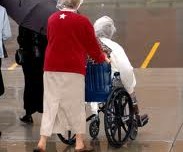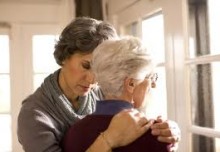 You may recall that I have recommended limiting your news consumption, because it really does add to our stressed feelings? Well, it also can give us a “wrong perspective” on our own family and what should be done to protect our older loved ones during this COVID-19 crisis. Translated, that means simply that we can be informed globally, but we need to respond locally (click here for what is going on in your locale). You have seen that most governors have plans for relaxing the quarantine that are tailored to specific regions with in the states. If you have an older loved one receiving care from a home care or home health agency or you currently are looking for in-home care, here are some tips on what to look for in caregivers for your older loved one. To be reassured that they will give the best care to your loved one, it’s time to up your game with:
You may recall that I have recommended limiting your news consumption, because it really does add to our stressed feelings? Well, it also can give us a “wrong perspective” on our own family and what should be done to protect our older loved ones during this COVID-19 crisis. Translated, that means simply that we can be informed globally, but we need to respond locally (click here for what is going on in your locale). You have seen that most governors have plans for relaxing the quarantine that are tailored to specific regions with in the states. If you have an older loved one receiving care from a home care or home health agency or you currently are looking for in-home care, here are some tips on what to look for in caregivers for your older loved one. To be reassured that they will give the best care to your loved one, it’s time to up your game with:
- Ask what extra precautions the agency is taking. The agency probably has posted on-line what they are now doing during a time of COVID, but you need to also ask about the actual caregivers to your older loved one…health screenings, protective equipment, sanitation, etc.
- Ask what is needed right now and what can wait. You may have seen that hospitals have postponed all “nonessential procedures.” Well, you should do the same for your loved one. To fully benefit from social distancing, it may be important to cut back on all nonessential services or interpersonal activities.
- Ask about technology. A lot of what has been face to face or person to person can be supplemented or replaced by health apps, phone calls, email or ZOOM meetings. Even doctor’s visits are embracing telemedicine.
- Ask also about your own care plan which may be picking up a fair bit of what an agency had done on behalf of your loved one. For your overall plan:
- Be sure to have a list of your loved one’s medications and schedules,
- Make sure your loved one has at least a 30 day supply of meds,
- Facial tissues and toilet paper should be stocked as well as groceries and other items used around the house,
- Compile a contact list in case of emergencies – all providers, family, etc.,
- Have a fallback to the caregiver for your loved one if the caregiver becomes ill, and
- Monitor all of this, even if at distance. Better to be overstocked than run out.
Charlotte Bishop is an Aging Life Care Advisor, Geriatric Care Manager and founder of Creative Care Management, certified professionals who are geriatric advocates, resources, counselors and friends to older adults and their families in metropolitan Chicago. She also is the co-author of How Do I Know You? A Caregiver’s Lifesaver for Dealing with Dementia.







